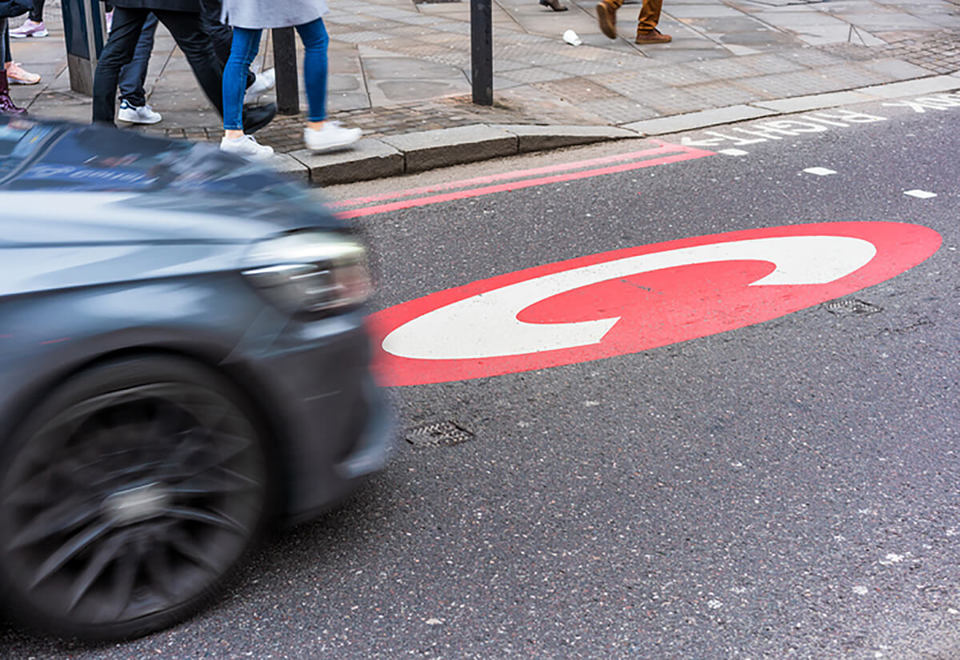Tackling privacy concerns and ensuring fleets are consulted before any new road charging regime is introduced are among a series of recommendations made in a new report.
Due for debate today (Wednesday, March 13) by the London Assembly transport committee, the Future Road User Charging in London report follows a consultation and meetings with industry experts, campaigners, road-user groups and policymakers.
Previous research, commissioned by the Mayor of London in 2022, suggested that to achieve a required reduction in car use in the capital would need a new kind of road user charging system implemented by the end of the decade at the latest.
Such a system, said the Mayor, Sadiq Khan, could abolish all existing road user charges – such as the congestion charge and the ultra-low emission zone (ULEZ) - and replace them with a scheme where drivers pay per mile, with different rates depending on how polluting vehicles are, the level of congestion in the area and access to public transport.
However, arguing that the technology to implement such a scheme would take time, he instead decided to expand the ULEZ to cover Greater London.
Following the expanded zone’s launch in August, 2023, Khan insisted that a future road user charging scheme is not on his agenda.
Writing in the report’s forward, London Assembly member and chair of the transport committee when the road pricing investigation was conducted, Siân Berry, says that, with the original central London Congestion Charge now more than 20 years old, there have been regular debates and discussions about how it might evolve and change, or what kind of scheme might replace it.
“The Mayor of London has broad powers to introduce a range of new charging schemes if and when necessary, as does the national Government,” she explained. “However, all current road charging schemes in London, including the Congestion Charge, the Low Emission Zone and the ULEZ are simple and area-based.
“Smarter forms of road user charging have been periodically proposed, and opposed, by different groups of stakeholders.
“In these, higher or lower charges could relate to distances driven, pollution from vehicles, and times of higher or lower congestion on the roads.
“To date, no genuinely distance-based road charging scheme has been implemented in any city or country worldwide.”
She added that the committee did not set out to come to a view on whether or not any new road charging scheme should be developed.
Instead, the report seeks to present the issues that need to be considered as part of the development of any future scheme alongside recommendations to a future Mayor, or Government, considering introducing a new scheme.
The report finds that several different objectives and design options for a future road user charging scheme are possible, and while new developments may simplify payment of charges the risk is a scheme becomes too complex.
Any future Mayor or Government considering a new scheme, it says, needs to be clear in what they are setting out to achieve and should aim to make the use of the scheme and payments simple for users to understand.
Several key factors also need to be considered ahead of the introduction of any future road user charging scheme – including the provision of alternatives to driving, such as public transport and active travel measures.
Another key factor, it argues, is consideration of individual privacy. Discussion around a future road user charging scheme in London has resulted in substantial public concern, as well as public interest., it says.
Anyone considering developing a future scheme would need to conduct early, wide and open public engagement to ensure the voices of individuals and stakeholders are heard; and that they are able to help shape any future scheme.
It concludes that any future Mayor, or Government, considering a new scheme would need to consult with Londoners and stakeholders regarding the design of any scheme and what mitigation measures might be needed; and consider the impact on the most affected.
Pay-per-mile tax divides opinion

More than half (53%) of UK drivers do not want to see a pay-per-mile system for car tax, according to new research from Go Compare Car Insurance.
The survey of 2,000 adults shows that just over a quarter (26%) of drivers are in favour of switching to pay-per-mile, while one-fifth are unsure.
The proposed system would involve drivers paying tax based on the number of miles they drive each year.
When asked why they are not in favour of the system, the top reason was that they believe it would be used to increase tax.
Three in 10 drivers who oppose the method said they have concerns over how it would be monitored.
Tom Banks, car insurance expert at Go Compare, said: “A shake-up of the current tax system is certain to cause differences of opinion for motorists across the nation. Our latest research into drivers’ attitudes towards the new proposal shows that at the moment, more motorists are against a switch to a pay-per-mile tax method.
“Our report also highlights the valid concerns of drivers about what the new method of tax could mean for them. So, one thing is for sure, if a pay-per-mile system is to be put in place, motorists' concerns need to be addressed first.”
One-third of drivers aged 55 and over would like to see a pay-per-mile system, compared to 24% of motorists aged between 35 and 54, and 19% of 18 to 34-year-old drivers.





















Login to comment
Comments
No comments have been made yet.